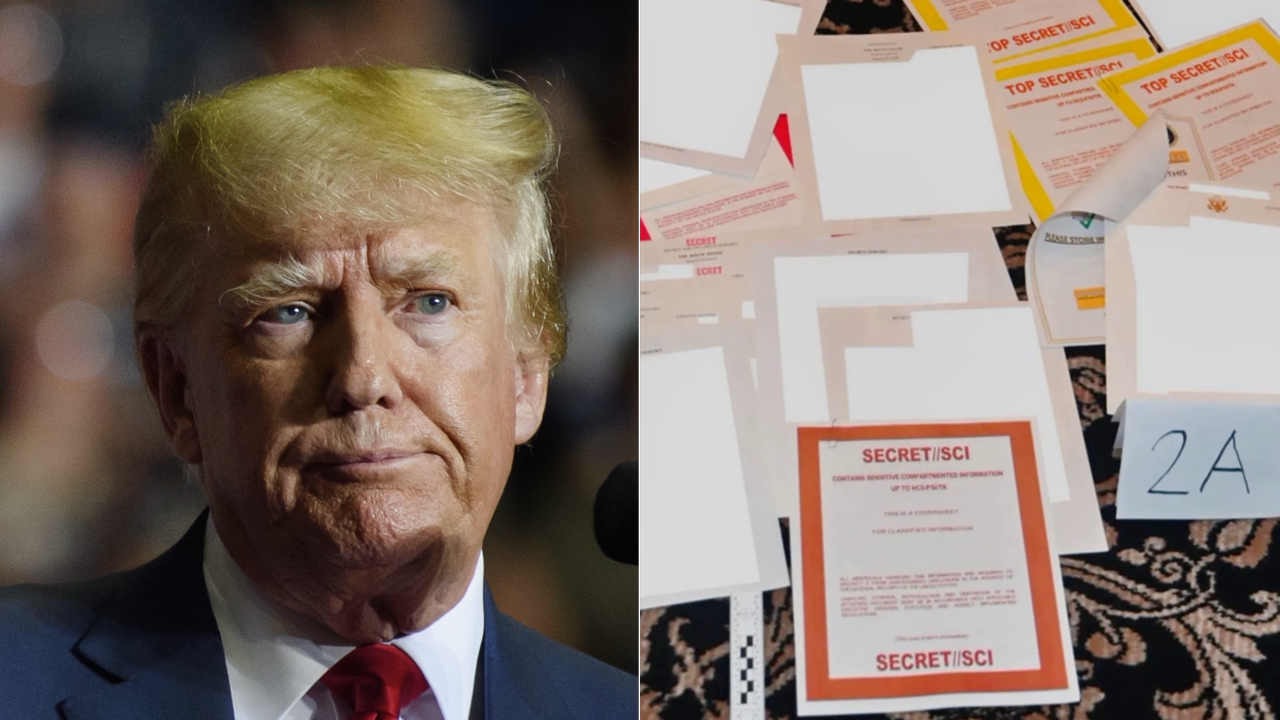‘Obstructive Acts May Impede Investigation’: DoJ Sounds Alarm in Motion To END Trump-Appointed Judge’s Special Master Ruling

L: Jeff Swensen/Getty Images R: Department of Justice
The Department of Justice has filed a motion to end Trump-appointed District Court Judge Aileen Cannon‘s Special Master order, saying it fears “obstructive acts may impede” their investigation if is not lifted.
Cannon — a Trump appointee — has previously ruled that not only should a special master must be appointed to review the seized documents, she enjoined the Justice Department from using the documents in its investigation of Trump for crimes involving the Espionage Act in the interim.
She also issued the ruling appointing Judge Raymond Dearie — one of Team Trump’s proposed candidates — as Special Master, and denying DoJ’s motion to continue their review of the 100 classified documents seized.
But a three-judge panel in the 11th Circuit Court of Appeals — Obama appointee Judge Robin Rosenbaum, Trump appointee Judge Britt Grant, and Trump appointee Andrew Brasher — overturned Cannon’s decision, and ruled the government could continue investigating the classified documents.
Now, the Justice Department is asking the 11th Circuit to overturn Cannon’s entire order. In their 58-page filing, the DoJ says it fears “obstructive acts may impede its investigation” if the order remains in place:
The district court’s injunction barring review and use of the other seized records harms the government and the public as well. A magistrate judge has already found probable cause to believe that those records may constitute evidence of crimes, and the government has demonstrated a clear need for them. See supra at 33-36. Moreover, the public has an “interest in the fair and expeditious administration of the criminal laws.” United States v. Dionisio, 410 U.S. 1, 17 (1973); see Cobbledick v. United States, 309 U.S. 323, 325 (1940) (“[E]ncouragement of delay is fatal to the vindication of the criminal law.’). The government’s need to proceed expeditiously is further heightened where, as here, it has reason to believe that obstructive acts may impede its investigation. See Mj-DE.80:7-9.
The injunction bars the government from reviewing these records for months—until at least the mid-December deadline for the special master’s review, and likely well beyond that pending further proceedings before the district court. The injunction further compounds these harms by interposing the court in the government’s investigation, prohibiting the government from reviewing or accessing the records even for the purpose of evaluating potential charges.
The New York Times reached out to Trump attorney Chris Kise for comment, but received no response.
New: The Mediaite One-Sheet "Newsletter of Newsletters"
Your daily summary and analysis of what the many, many media newsletters are saying and reporting. Subscribe now!






Comments
↓ Scroll down for comments ↓